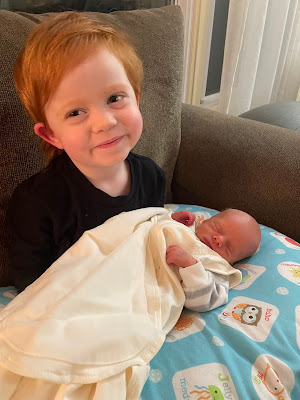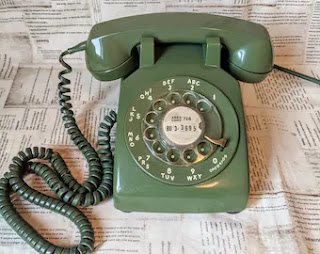 |
| Olivia Carpenter, left, with her new baby brother, Leon Thomas Carpenter, who was born Nov. 9 and weighed 3 pounds, 14 ounces at birth. COURTESY PHOTO |
Managing Editor
Thanksgiving is all about gratitude, which is a quality that continues to inspire many during the annual holiday season.
Early on, my parents taught me that Thanksgiving Day is about
more than gathering with relatives, sharing a bountiful meal and laying in front
of the television watching football.
To me, Thanksgiving affirms all the good things that have
happened over the course of the past year and to recognize the roles that others
contribute to providing goodness in my life.
Without further fanfare, here’s my list of things I am
grateful for this Thanksgiving Day:
First, a miracle occurred just two weeks ago when Leon Thomas
Carpenter was born in Danbury, Connecticut. After his mother
was in and out of the hospital in the later stages of pregnancy this summer
and into the fall, Leon made his debut as Grandchild #3 weighing in at 3
pounds, 14 ounces on Nov. 9.
After gaining a little weight in the Neonatal Intensive Care Unit where
he had been since birth on a tiny breathing machine, Leon was sent home from
the hospital last week where he joined his parents, Chuckie and Casie, and big brother Joseph, and big
sister Olivia.
The fact that babies weighing so little can make it is simply a
testament to the indomitable will to survive and to the medical staff’s skill
and expertise in delivering a child so small.
Therefore, I’m grateful that our third grandchild has arrived
and is gaining strength and weight with each passing day.
Second, to even be a grandfather for me personally is
something truly remarkable. After being single for 14 years and rapidly
approaching 50, an internet date at a Friendly’s Restaurant in Florida changed
my life forever in 2004.
An elementary school teacher answered an ad that I had placed
on a dating website, and we agreed to meet over a bowl of ice cream on a
weeknight in May. The fact that she even chose to reply was nothing less than a
miracle as I did not have a photo posted with the ad and it only listed the city I
lived in, my gender, and my age.
But fate has a funny way of working it out sometimes. That
date turned out to be the best one I ever had, and we mutually agreed to see
each other again the following week. After several long phone conversations,
she informed me that she was going to undergo cancer surgery and I probably
wouldn’t want to date her as a result.
But being a cancer survivor myself, I was compelled to share
my experience with her and to help her through the process of chemotherapy and
radiation. Slowly she got better following the surgery and by Christmas, she
came to stay for the holidays and never went home.
We were married in Cleveland, Ohio in June 2005 as she
attended her youngest son’s high school graduation and suddenly at the age of
51, I found myself as the stepfather of three grown young men all at or near their 20s.
I’ve watched as these three young men have embarked upon
careers, moved into new homes and now in oldest stepson Chuckie’s case, have begun to raise a family.
And to think it all started with meeting a person I didn’t know
previously answering an internet dating website ad almost two decades ago. If
you think that’s not something to be grateful for, you are wrong.
The life of a journalist since 2004 has taken me from working
for a daily newspaper to an online newspaper startup to working for a weekly paper in
Florida, then a move north from Florida to a daily newspaper in New Hampshire
and eventually moving again to Maine for work at a daily paper in Biddeford, retirement, and
then coming out of retirement to work for a weekly paper again in Windham, Maine.
My family has seen my career go from a news reporter, copy
editor and sportswriter to community sports editor, managing editor, executive
editor and now Managing Editor of The Windham Eagle. And the one constant
during all of that transition has been my wife, Nancy, and my three stepsons,
Chuckie, Brian and Danny Carpenter.
My life has been fuller because they are in it and now in my
role as “Grandpa Ed,” yet another chapter has dawned for me. Therefore, I’m
grateful Nancy took the time to answer my internet ad because it made my life
complete and a new world opened as I experienced what it is like to be a parent
and now, a grandparent.
Lastly, this Thanksgiving I’m also grateful to have
reconnected with so many of my high school classmates and friends at our Rush-Henrietta High School 50th
Class of 1971 Reunion in Rochester, New York during the weekend of Oct. 29.
I was able to tell classmates I have known for 55 years or
more how much of a difference they made in my life and how much I continue to
treasure their friendship and encouragement despite the passing of five
decades.
It’s said that in daily life, we seldom realize that we
receive more than we give and that through gratitude we discover that our lives
are richly blessed. In my case, it’s so true. <










